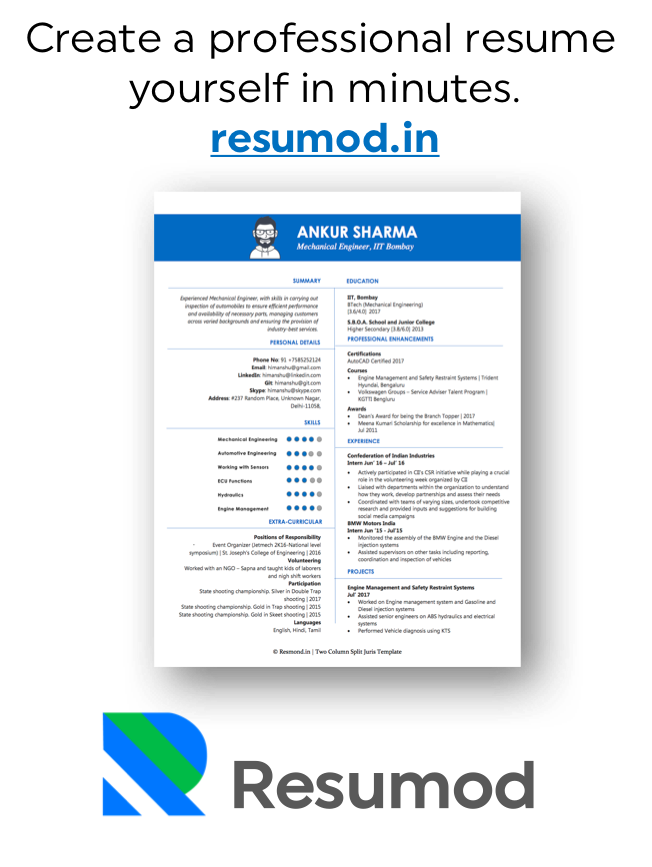Canada is considered one of the best countries, and IELTS can help you go there. If you intend to study in Canada at the undergraduate or postgraduate level, you will very certainly be required to submit your IELTS score as part of your application. Apart from preparing for IELTS, you also require a perfect resume to help you in your future endeavours.
Most of us know that IELTS is one of the world’s most popular English language tests. Every year almost or perhaps more than 3.5 million tests are taken. Before going further, it is also important to know what the IELTS exam is. IELTS is considered the English test of choice for almost all the educational institutions of Canada and professional associations and businesses. If you want to move to Canada, IELTS is the appropriate test for you because it is approved by Citizenship and Immigration Canada (CIC) and universities and colleges across the country. Let’s look at what is required for study and work in Canada.
Study in Canada
Over 350 organizations and colleges in Canada accept IELTS because this IELTS test score might assist you in achieving your objective of admission to a Canadian college or university. To address their local labour market needs, Canadian provinces and territories use the same Express Entry pool that you use to apply for the Provincial Nominee Program (PNP). In the same manner, you can also apply for the Quebec-selected skilled worker process. Suppose you have a Quebec Selection Certificate (Certificat de sélection du Québec) from the Quebec government, then, in addition. In that case, you would have to submit a comprehensive permanent residence application, including police certifications, if you took admission from this process.
If you are thinking about post-graduation or working after that, don’t forget to scroll down!
Post-graduation Work Permit
After Covid-19, we all have seen changes in our lifestyle and the shift in work from offline to online. Although your resume matters as much as it did before, there are some changes in current academics. However, there is an advantage for students planning to enroll in online programs or wish to apply for immigration, enter a country as a refugee, or gain citizenship. Canada has implemented three new measures for post-graduation work permit eligibility. These modifications have given international students who need or wish to begin their Canadian study program online from another country additional flexibility. Let’s look at the three changes:
- Until April 30, 2021, students can now study online from anywhere in the world. In addition, no time is deducted from the length of a prospective post-graduation work visa, if they complete 50% of their program in Canada.
- Students participating in an 8–12-month program with a start date between May and September 2020 will be able to complete their programs entirely online while still being eligible for a post-graduation work visa.
- Those students who have already registered in a course beginning between May and September 2020 and study online until April 30, 2021, or are graduate from more than one suitable program of study perhaps can combine the lengths of their course of study while applying for a post-graduation work permit in the future. It will stay if they can finish 50% of their total studies in Canada.
Migrate to Canada
To prepare for IELTS to work in Canada, you must clear the test that Citizenship and Immigration Canada (CIC) and Immigration Quebec must be recognized. Moreover, there are several stages to follow if you want to apply for permanent residence or Canadian citizenship. The most prominent is Express Entry, an online system that processes applications for permanent residence from skilled workers through three economic immigration programs:
- Federal Skilled Worker Programme
- Federal Skilled Trade Program
- Canadian Experience Class
IELTS General Training is an internationally recognized English language proficiency test useful for gaining entry as a refugee or gaining citizenship in Canada. The test scores you on a scale of 0 to 9 in four areas: reading, writing, listening, and speaking. All these skills must be at the Canadian Language Benchmark (CLB) level. Also, you will be required to attach your result of IELTS as part of your application to process your visa. So, prepare very well and get through with the structure of your paper, practice as much as you can, and always read no matter where you are. And the most important thing is to manage your time well and stay calm.



